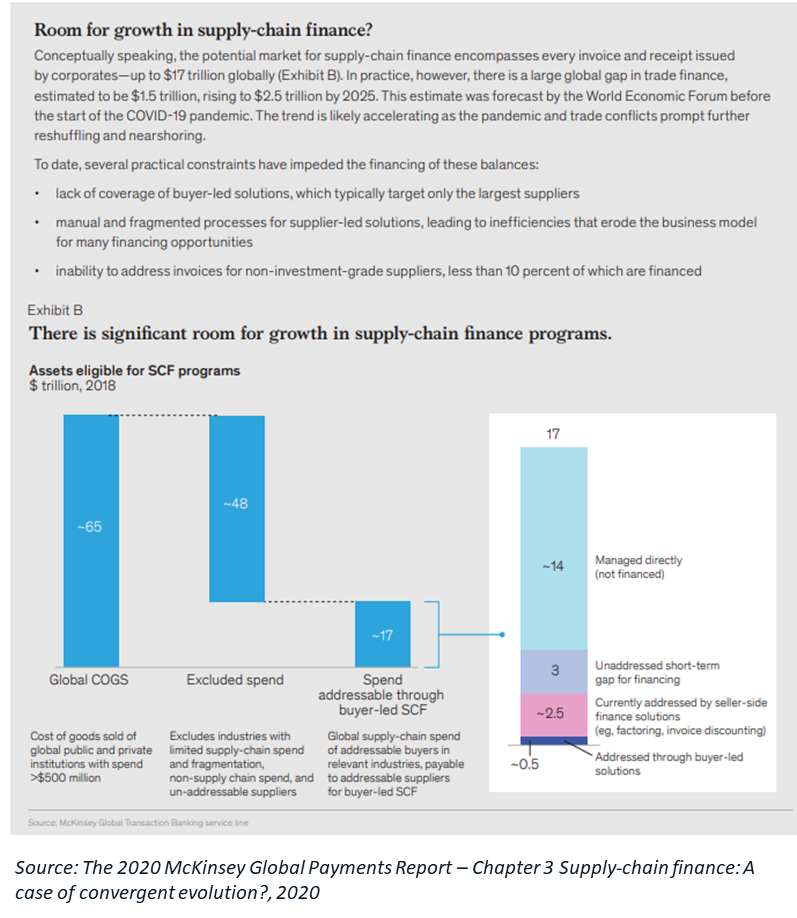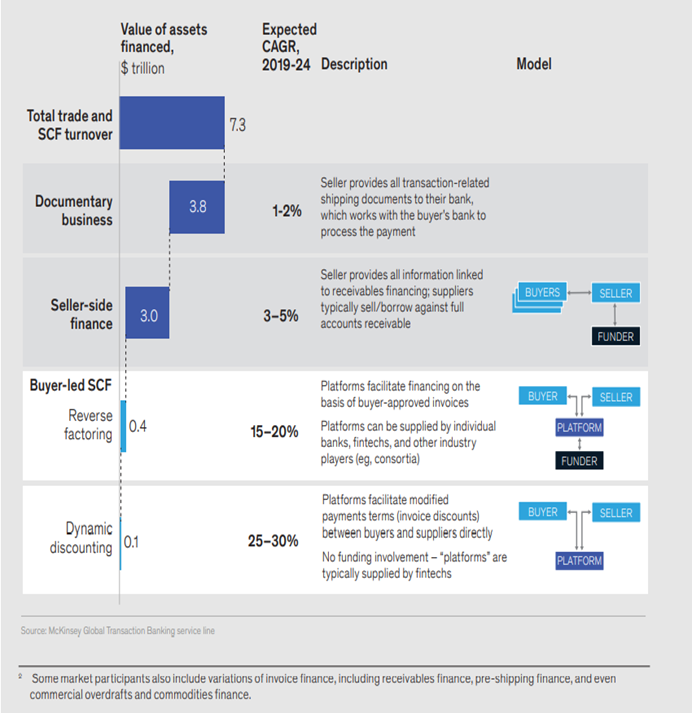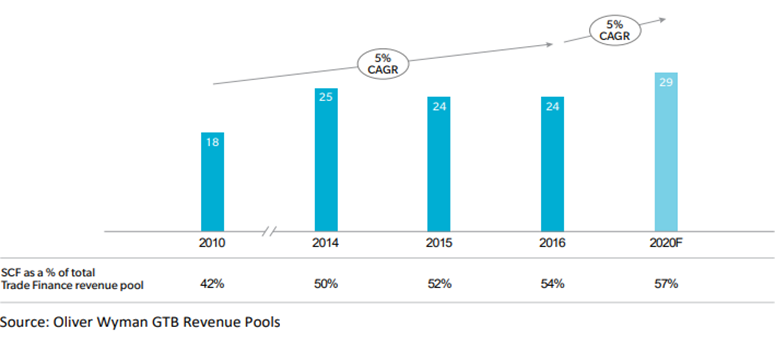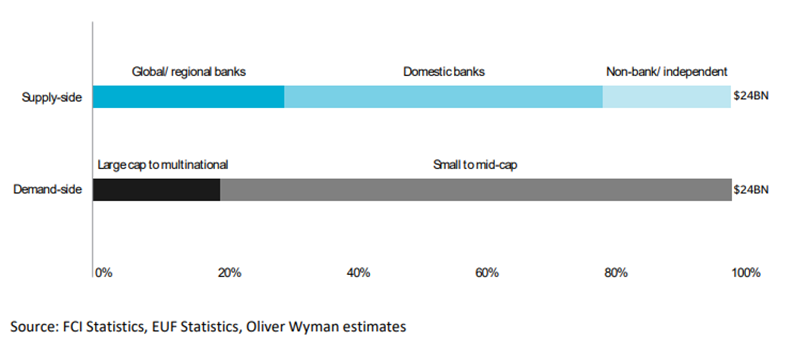Significant value in the global supply chain finance (or SCF) market remains untapped. Nearly 80% of eligible assets do not benefit from better working-capital financing, and the remaining 20% of assets are often inefficiently financed.
Change is accelerating in the market in response to a convergence of factors:
- an increased focus on working capital, structural changes in financing for small and medium-size enterprises (SMEs), a step change in digital adoption, and
- the potential geographic relocation of USD2.9 trillion to USD4.6 trillion in spending on cross-border supply chains (for 16 to 26% of global goods exports) over the next five years

Historic barriers held back the growth in SCF:
- Manual and fragmented process flows; solution: streamline the financing process by allowing automated data flow via integration with enterprise-resource-planning (ERP)
- Fragmented data sharing; solution: to work on developing data-sharing utilities such as standard application programming interfaces (APIs) and arm’s-length data repositories
- Slow onboarding and credit decisions; solution: SCF will need to accelerate the typical multiday cycles that inhibit corporates from accessing working capital relief
Therefore, the key driving factor for SCF is and will be focus on their digital interfaces as part of SCF platforms. This is addressed by PRI® platform.

Three waves of growth
Beginning with supplierâ€ÂÂÂled solutions, moving to buyerâ€ÂÂÂled solutions and then to solutions that combine them. Each wave is still advancing and new opportunities for providers exist in each wave
Source: Oliver Wyman paper - Corporate Banking Insight - Supply Chain Finance: Riding the Waves, 2017
Wave 1
Supplier solutions Receivables finance:
- Rapid growth due to constrained bank credit
- Deepening in less-established markets
- Rise of new providers and platforms
- Demand extending into larger corporates


Wave 2
Buyer solutions Approved payables:
- Rapid growth as MNCs place increased focus on supply chain integrity
- Dynamic discounting fueled by excess corporate cash
- Rise of new platform providers/marketplaces
Wave 3
Convergence of buyer and supplier solutions:
- New business models
- New analytics-driven solutions
- Extending financing earlier in the production cycle
- Integration of financial and non-financial solutions
test
The winner in this third wave of SCF needs to bring together a range of capabilities:
- Access to rich data sources, including transaction data
- Advanced analytical techniques, including artificial intelligence and machine learning techniques to maximize the value of the data and extract predictive insights
- Short time to market, with the ability to identify and launch new dataâ€ÂÂÂdriven products in a short timeframe (typically months) and to navigate the many hurdles (risk policy, compliance, IT) to get comfort with the new propositions
- Solve customer problems by making client procurement, finance and fulfilment processes simpler and more cost effective
Qube added value in Receivables & Supply Chain Finance
- Qube Financing (and its affiliates) have developed the Qube platform, supported by its proprietary PRI® inside infrastructure, front-end to back-end fully automated receivables financing platform (“Qube Platform”), as one of the earlier Fintech 3.0 initiatives in the market and is fully equipped to be the winning platform of the third wave.
- This Qube Platform is fully operational and has been fully adopted by institutional investors, including the standardized procedures, ‘modus operandi’ and underwriting process steps & criteria.
- Qube targets European SME and Mid Market Corporates with a fully standardized approach as well as tailored solutions for multinationals, predefined underwriting criteria that are agreed with institutional investors and supported by PRI® inside and the add-on credit & collection management application PRI® CrediSoft and PRI® Supply Chain.
- Offering consolidated multi jurisdictions multi operating companies fully automated working capital financing solutions based on invoiced turnover, whereby PRI® inside directly interfaces with the Corporate's ERP systems, the Connection.
- The Qube Platform benefits from a modular design and standardized processes and legal infrastructure.
- US version of PRI® infrastructure can be calibrated for US time zone and jurisdiction.